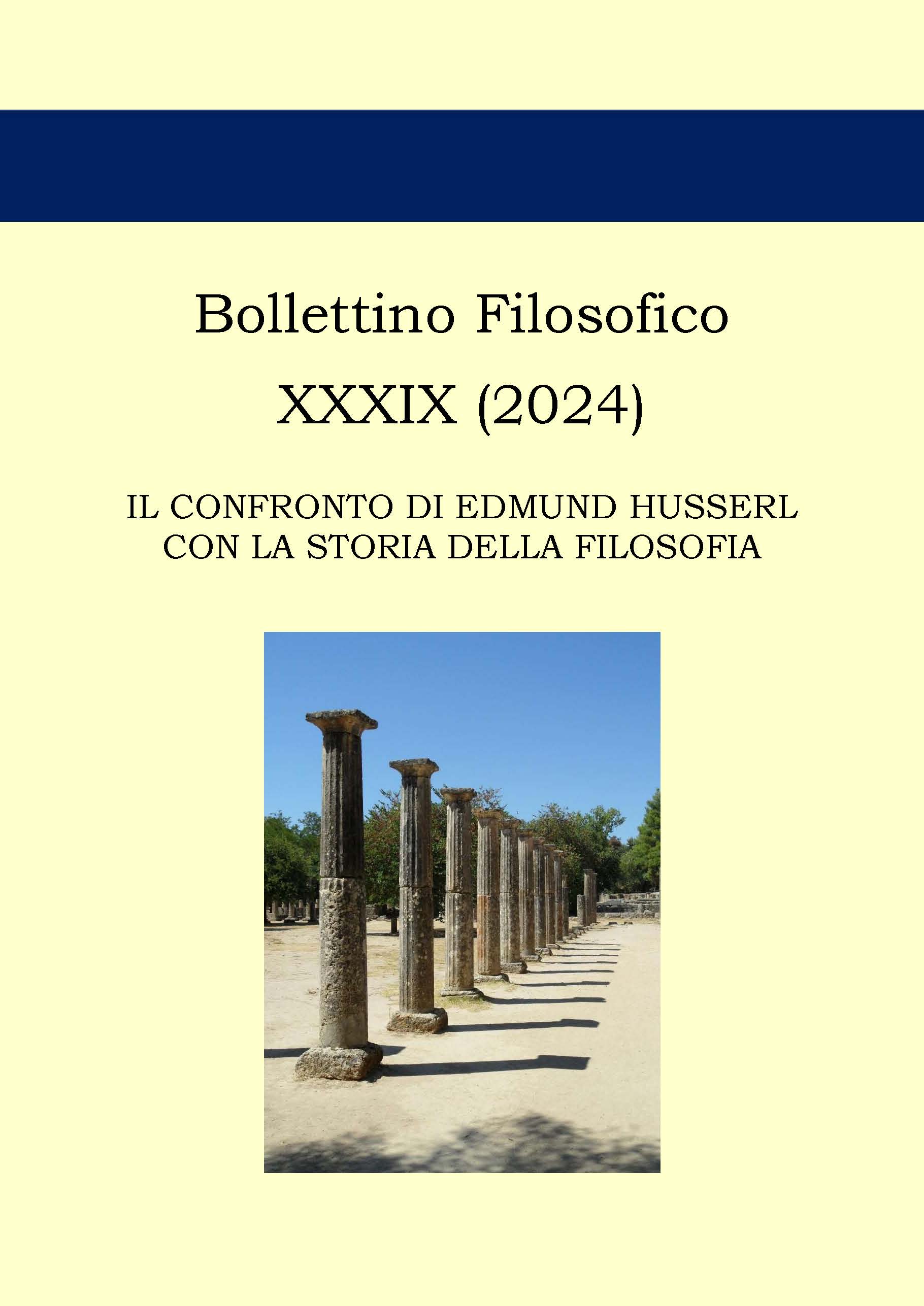La monadologia husserliana
Abstract
This paper investigates the encounter, dialogue, and contamination of Leibnizian monadology in phenomenology. It analyzes both the theoretical-phenomenological motivations that led the German phenomenologist to reintroduce the notion of the monad and the consequent intersubjective path that enabled a more solid degree of objectivity, through the “res publica” of monads or their harmonic agreement. Additionally, it examines the critical issues in Husserl's interpretation. The aim is to highlight that the Monadenlehre develops on a plane of theoretical and historical immanence which takes over and modifies the results of Leibniz’s philosophy. All this serves to emphasize that the thoughts of the philosopher from Leipzig, embedded in phenomenological reflection, come back to life, initiating a new spiritual generativity, even though the historical reconstruction conducted by the phenomenologist is sometimes confused and naive.
Keywords: Intersubjectivity, Metaphysics, Monadology, Phenomenology, Spiritual Generativity
Downloads
Copyright (c) 2024 Daniela De Leo Giorgio Rizzo

This work is licensed under a Creative Commons Attribution 4.0 International License.
Bollettino Filosofico pubblica in internet, ad accesso aperto, con licenza:
|
|
CCPL Creative Commons Attribution |
L'autore conserva il copyright sul suo contributo, consentendo tuttavia a chiunque "di riprodurre, distribuire, comunicare al pubblico, esporre in pubblico, rappresentare, eseguire e recitare l'opera", purché siano correttamente citati l'autore e il titolo della rivista. L’autore, al momento della proposta di pubblicazione, è inoltre tenuto a dichiarare che il contenuto e l’organizzazione dell’opera è originale e non compromette in alcun modo i diritti di terzi, né gli obblighi connessi alla salvaguardia di diritti morali ed economici di altri autori o di altri aventi diritto, sia per testi, immagini, foto, tabelle, sia per altre parti di cui il contributo può essere composto. L’autore dichiara altresì di essere a conoscenza delle sanzioni previste dal codice penale e dalle leggi speciali per l’ipotesi di falsità in atti ed uso di atti falsi, e che pertanto Bollettino Filosofico è esente da qualsiasi responsabilità di qualsivoglia natura, civile, amministrativa o penale, e sarà dall'autore tenuta indenne da qualsiasi richiesta o rivendicazione da parte di terzi.
